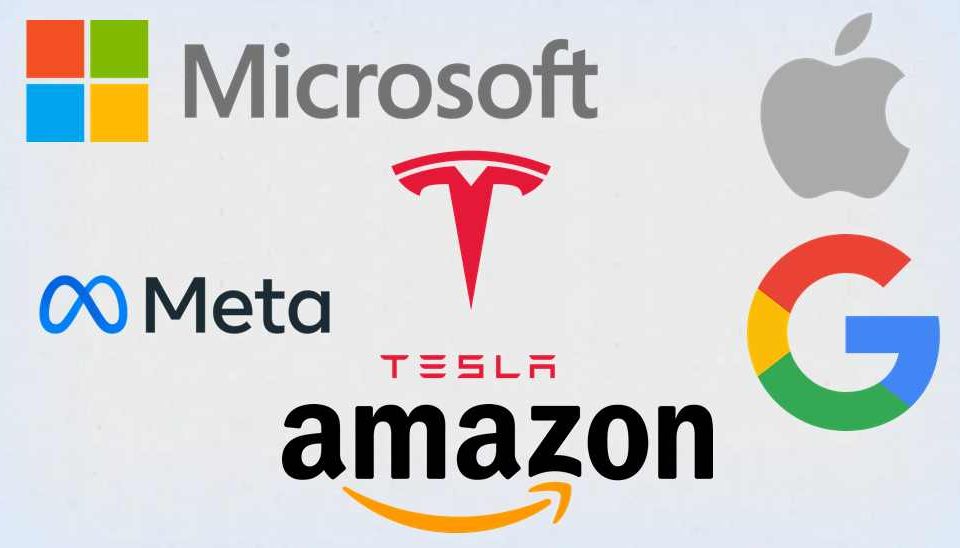Big Tech to spend $344B in 2025 amid surging AI demand

The AI arms race isn’t cooling off. It’s accelerating, and the numbers behind it are staggering. Tech giants are expected to pour over $344 billion into AI-related spending in 2025 alone, according to Bloomberg. This isn’t just hype—it’s an all-out scramble to dominate what many believe could be the next foundation of computing.
Microsoft, Amazon, Alphabet, Meta, and Apple are leading the charge, fueled by a mix of ambition, fear, and the pressure to stay ahead. AI has gone from being a long-term bet to an immediate battleground—and no one wants to be left behind.
Record-Breaking Spending
Bloomberg’s report highlights just how aggressive these companies have become. Microsoft spent $24.2 billion in capital last quarter and plans to push that to $30 billion this quarter. Amazon doubled its capex year-over-year to $31.4 billion. Alphabet raised its guidance to $85 billion, and Meta has boosted its lower-end forecast for 2025—with even more spending on the horizon in 2026.
Even Apple, which tends to play its cards closer to the chest, isn’t sitting this one out. The company has already spent $9.47 billion on property, plant, and equipment in the first nine months of its fiscal year—a 45% jump from 2024. CFO Kevan Parekh says much of that is AI-related, though he added Apple won’t chase the “exponential” ramp of its peers.
And this isn’t just a 2025 story. Bloomberg Intelligence projects that Microsoft, Amazon, and Meta will spend $525 billion on AI infrastructure by 2032. The bulk of that will go to data centers—essential for running large-scale models that require enormous processing power and electricity.
“Microsoft Corp., which set a $24.2 billion capital spending record last quarter, plans to drop upwards of $30 billion in the current period. Amazon.com Inc. similarly spent $31.4 billion last quarter, almost double what it dropped a year ago, and is maintaining that level of investment. Google owner Alphabet Inc. raised its capital expenditures guidance this year to $85 billion,” Bloomberg reported.
The AI Rush
The fear of falling behind is driving much of this. Since OpenAI’s ChatGPT launch in late 2022, the tech sector has been locked in a high-stakes race to build and deploy the best AI tools.
These systems are expensive to train and run. Chips alone can cost tens of thousands of dollars per unit, and data centers need massive amounts of energy to keep up. Microsoft CFO Amy Hood called it a “capacity execution challenge.” Meta’s CFO Susan Li put it more plainly: the goal is to lead in model development—no matter the cost.
Alphabet CEO Sundar Pichai backed a $10 billion bump in capital spending based on customer demand, especially for cloud AI services. And according to Radical Ventures’ Jordan Jacobs, the thinking among CEOs is clear: spending too much is safer than spending too little.
That mindset has led to deals like Meta’s $14.3 billion investment in Scale AI, which secures both technology and talent.
Not Everyone’s Winning
The returns, however, aren’t evenly distributed. Amazon’s cloud division underwhelmed investors last quarter, triggering an 8.1% drop in its stock. Analysts say its margins will stay under pressure through 2026 as AI infrastructure costs pile up. Microsoft and Google, by contrast, are seeing better payoffs in their cloud businesses.
One company that’s thriving no matter what: Nvidia. Its high-end GPUs—priced between $30,000 and $40,000—are in hot demand. Meta alone is on track to buy 350,000 units by the end of 2024, potentially spending $18 billion. Nvidia’s quarterly revenue is projected to hit $24 billion, up from $8.3 billion just two years ago.
But not everyone’s convinced this level of spending is sustainable. Goldman Sachs recently flagged the issue in a report bluntly titled: “Gen AI: Too Much Spend, Too Little Benefit?”
Big Picture Impact
This isn’t just a tech story. The AI buildout is beginning to ripple through the broader economy. The Washington Post estimates that the top four tech companies’ $350 billion in AI spending could lift U.S. GDP by 0.7% in 2025. Jobs tied to chip manufacturing, construction, and engineering could see a boost.
Still, it’s not all upside. Revised labor numbers suggest a softer job market overall, raising questions about whether AI will create more disruption than opportunity. The environmental toll is another growing concern. These new data centers are massive energy hogs. The Guardian pointed out that Big Tech’s AI spend in 2025 will exceed U.S. government spending on education, jobs, and social services combined.
Looking Ahead
There’s no slowdown in sight. Bloomberg Intelligence projects Big Tech’s AI capex could top $500 billion annually by the early 2030s. Startups like OpenAI are already planning $60 billion data center projects. The stakes keep getting higher.
But the payoff still isn’t guaranteed. As Ramp CEO Eric Glyman pointed out, companies are definitely buying AI tools—but whether those tools deliver value at scale is still uncertain.
That’s the crux of it: Everyone’s betting big. The costs are mounting. And the returns? Still a work in progress.

Credit: Financial Times




